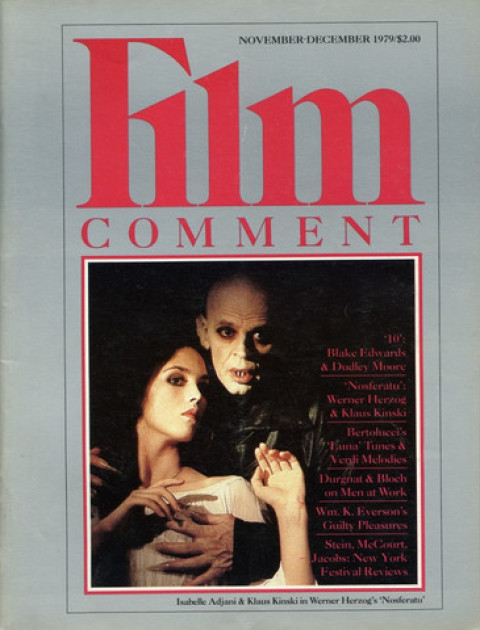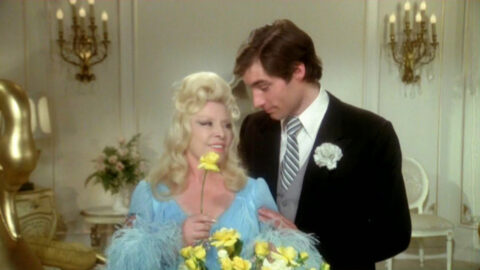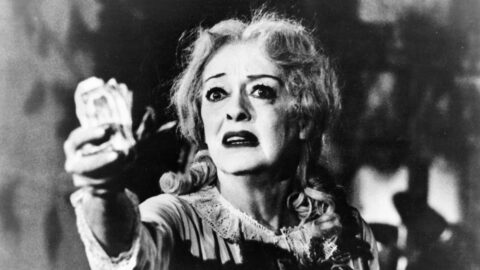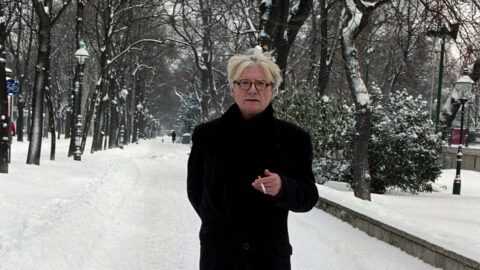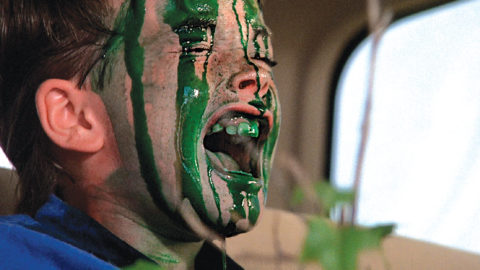
The following list (with Flaubert’s Dictionnaire as its model) is intended only as a frivolous skirmish well in the margin of that civil war of critical methodologies currently being waged between auteurist Cavaliers and structuralist Roundheads, dedicated respectively to upholding and dethroning the King, or Author. Possessing neither the former’s tastes nor the latter’s discipline, I offer here a selection of idées reçues which continue to plague serious film journals, of whatever persuasion or pretention; others to be found in fan magazines, newspaper review sections and “informed” conversation; and all of which I, personally, am sick to death of. I have listed them, modishly, in alphabetical order.
ACTORS. Cattle.
DON AMECHE. Invented the telephone.
DANA ANDREWS. Dependable.
ANSWERS. An interesting movie is one that has no answers but asks all the right questions.
AVIATION MOVIES. Great in the air but routine on the ground.
BERGMAN. Gloomy Swede. If standing in line for a Bergman and people come out of the previous show with long faces, say: “Must be good!”
BLACK-AND-WHITE. More beautiful than color.
CLARA BOW. It.
CAMERAWORK. The camerawork is that which goes unnoticed. Otherwise “filming through armpits.”
CARNÉ. Prévert.
CHAPLIN. Chaplinesque. Started in show business with the Fred Karno troupe. (Who was Fred Karno?) Best films are the early shorts—not yet spoiled by pathos.
CHILDREN. Scene-stealers.
CINÉASTE. Film buff (when it means, in fact “film director”).
COCTEAU. Magician, jack-of-all trades. Had beautiful hands. Orpheus great movie to see when stoned.
RONALD COLMAN. A gentleman.
COMEDY. A deadly serious business and, strange as it seems, much more difficult than drama. Comics are the unhappiest people offscreen. They all want to play Hamlet.
CUCKOR. Woman’s director.
MARION DAVIES. A much better actress than generally supposed. Would have been a star even without Randolph Hearst. Liked jigsaw puzzles.
DEMILLE. Run of.
DIETRICH. Invented by Sternberg. Mention Pygmalion and Galatea, Svengali and Trilby. Most of her movies are sent in Shanghai.
ALLAN DWAN. Preparing a new movie.
EDITING. The handwriting of a film. (But nobody ever knows the name of an editor.)
EISENSTEIN. Re-invented history. Odessa Steps massacre never happened. Steps never existed. No such places as Odessa.
EYEPATCH. Most old-time Hollywood directors wore one.
FAILURE. Often more interesting than success.
FASSBINDER. He’d make better films if he slowed down.
FELLINI. Self-indulgent.
ERROL FLYNN. Won World War II singlehanded.
JOHN FORD. Sean.
THE FRENCH. Originally applied to critics of Cahiers du Cinéma, now to any Frenchman expressing an opinion on the cinema. Think Jerry Lewis is a genius.
GARBO. Divine. One would willingly pay to see her act the phone-book. Never actually said, “I want to be alone.” Was right not to make a comeback; or, alternatively, is rumored to be making one.
JOHN GILBERT. Because of his squeaky, high-pitched voice, the talkies ruined his career.
GODARD. New Wave. Always wears dark glasses. Invented nothing—you can find jump-cuts in Citizen Kane.
LA GRANDE ILLUSION. Whenever this film is mentioned, take the opportunity to discuss the meaning of its title.
HAWKS. Professional. Always placed his camera at the height of a man’s eyes.
AUDREY HEPBURN. Elfin. Urchin. Gamine.
KATHERINE HEPBURN. Bryn Mawr.
HITCHCOCK. Hitch. Master of Suspense. Was locked in a police-station cell when he was a child. The French consider him a great Catholic artist.
HOLLYWOOD. Dream Factory (obsolete but coming back into fashion).
BOB HOPE. It was his gag writers who were funny.
HUSTON. The movies’ Hemingway. The Red Badge of Courage butchered by Louis B. Mayer. If someone should call his career into question, say: “I’d rather spend an evening drinking with him than with any other movie director!”
JAWS. The book was better.
KEATON. Never smiled. Unlike Chaplin, a real metteur en scène. Ruined by the talkies.
AKIRA KUROSAWA. Kurosawa Akira. The Japanese John Ford. Made “Eastern Westerns.”
LAUREL AND HARDY. The movies’ most enduring love story. Laurel was the genius (started in show business with Fred Karno). Hardy preferred to play golf.
LIGHTING. “Beautifully lit” invariably suggests greater competence in the matter than “beautifully shot.”
LOVE STORY. Didn’t see it.
LUBITSCH. Touch.
LUMIÈRE. Thought the cinema would remain a side-show attraction; never understood its true potential. Point out, however, that his name in French means “light.” Odd, that.
JOSEPH MANKIEWICZ. Intellectual (smokes a pipe). Dialogue of his films always “literate.”
MARX BROTHERS. All their films were written by S.J. Perelman. Duck Soup is a savage satire on war, Horse Feathers a savage satire on education, etc. Wordplay on surname shared by Groucho and Karl so amusing it can never be made too often.
MOGULS. Vulgar and crass. But, unlike today’s faceless businessmen, really understood what the movies were all about. Spoke in malapropisms. Mention Harry Cohn’s ass.
MOTION PICTURE. Archaic term (akin to “horseless carriage”) but still employed at solemn receptions, Academy Awards ceremonies, etc.
MUSIC IN FILMS. If you can hear it, it’s bad.
NAMES. No Hollywood performer ever used his or her real name.
OLIVIER. Sir Laurence Olivier. The greatest actor in the world.
OSCARS. Were never given to the people who most deserved them: Cary Grant, Garbo, Chaplin, Mitchum, etc. Liz Taylor got one for her operation.
OZU. Most Japanese of Japanese directors. Camera never moves, actors neither. Titles of his films always refer to seasons.
PASOLINI. It’s obvious from Salo that Pasolini knew he was about to be murdered.
POLANSKI. Life imitates art.
PRÉVERT. Carné.
GEORGE RAFT. Always tossed a coin in his movies.
SATYAJIT RAY. Indian cinema. “Ray” or “Rye”?
RENOIR. His father’s son—therefore, Renoir fils. Though his musical films (The Golden Coach, etc.) should always be referred to as “Mozartian.”
LENI RIEFENSTAHL. Nazism was created and developed mainly so she could film it.
FRANCESCO ROSI. Franco Rossi.
SIGNIFIED. Structuralist jargon. But not to worry—means “subject-matter,” more or less.
SIGNIFIER. Means “style,” more or less.
SILENT FILM. A lost art.
SLOW MOTION. A love scene in slow motion should always be compared to a commercial for menthol cigarettes.
STAR QUALITY. That mysterious something known as “star quality.”
STRUCTURALISTS. Anti-auteurists. Unreadable. “Why can’t they just sit back and enjoy the movie?”
SUNDAY SCHOOL PICNIC. What one erotic movie makes another look like.
SUPPORTING ACTORS. The real stars.
GLORIA SWANSON. “We didn’t need voices. We had faces!”
TATI. Monsieur Hulot.
TESTAMENT. The last film—any last film—a director makes.
TRILOGY. Any three consecutive films by the same director.
TRUFFAUT. Tender, chaste, sensitive. Good with children. Makes the kind of movies he once criticized.
LANA TURNER. Discovered by a talent scout at Schwab’s.
2001. A trip. HAL the most human character. Understood everything but the last scene.
VIDEO. Will revolutionize cinema. Soon nobody will go out to see a movie; we’ll all have cassettes at home.
VISCONTI. Prince and Marxist. His movies were “operatic,” his stage productions “cinematic.” Died in Venice.
WELLES. Whiz kid. Wunderkind. Enfant Terrible. Invented nothing—you can find deep focus in The Birth of a Nation.
Also read Adair’s Go West, Old Mae from the May/June 1980 issue.



